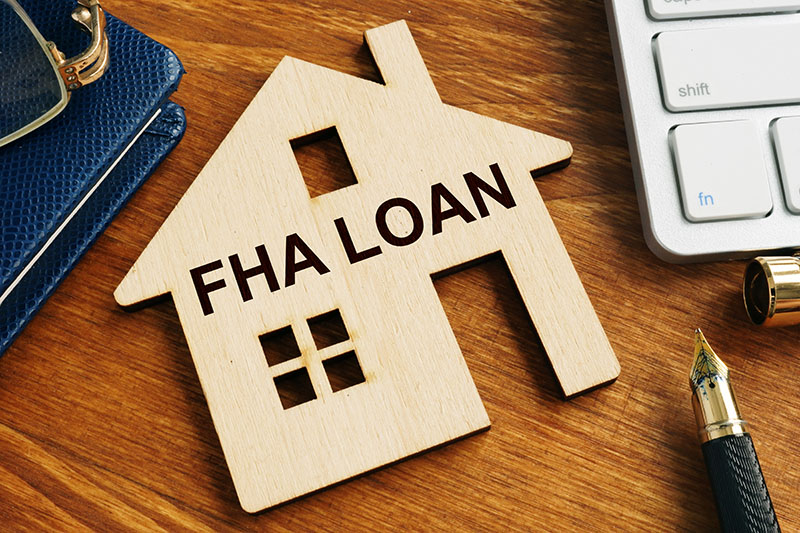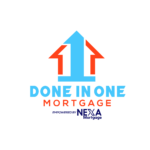An FHA Home Loan may get you into a home with a low down payment
One of the biggest hurdles that first time homebuyers face is saving up for a sizable down payment on a home.

A Federal Housing Administration (FHA) loan is a type of mortgage that is insured by the U.S. Federal Housing Administration, which is part of the Department of Housing and Urban Development (HUD). The primary purpose of FHA loans is to make homeownership more accessible to individuals who may not qualify for conventional mortgages due to lower credit scores or smaller down payment capabilities.
FHA loans off serveral advantages
・Lower Down Payment: FHA loans typically require a lower down payment compared to conventional mortgages. Borrowers may be able to put down as little as 3.5% of the purchase price.
・Easier Credit Requirements: FHA loans are more forgiving when it comes to credit scores. Borrowers with lower credit scores may still be eligible for an FHA loan, although specific requirements may vary.
・Competitive Interest Rates: FHA loan interest rates are generally competitive, making homeownership more affordable for eligible borrowers.
・Fixed and Adjustable Rates: FHA loans offer both fixed-rate and adjustable-rate options, giving borrowers flexibility in choosing a suitable mortgage product.
・Streamlined Refinancing: FHA loans allow borrowers to refinance their existing FHA mortgages with less paperwork and documentation, potentially lowering monthly payments.
・Assumable Loans: FHA loans are assumable, meaning that if a borrower sells their property, the buyer may take over the existing FHA loan under certain conditions. This feature can be attractive in a rising interest rate environment.
・Easier Credit Requirements: FHA loans are more forgiving when it comes to credit scores. Borrowers with lower credit scores may still be eligible for an FHA loan, although specific requirements may vary.
・Competitive Interest Rates: FHA loan interest rates are generally competitive, making homeownership more affordable for eligible borrowers.
・Fixed and Adjustable Rates: FHA loans offer both fixed-rate and adjustable-rate options, giving borrowers flexibility in choosing a suitable mortgage product.
・Streamlined Refinancing: FHA loans allow borrowers to refinance their existing FHA mortgages with less paperwork and documentation, potentially lowering monthly payments.
・Assumable Loans: FHA loans are assumable, meaning that if a borrower sells their property, the buyer may take over the existing FHA loan under certain conditions. This feature can be attractive in a rising interest rate environment.
What is required for an FHA loan?
・Credit score: You must have a minimum credit score of 500 to qualify for an FHA loan. However, if your credit score is between 500 and 579, you will need to make a 10% down payment. If your credit score is 580 or higher, you can make a down payment of just 3.5%.
・Debt-to-income ratio: Your monthly debt payments, including your mortgage, car payments, student loans, and other debts, must not exceed 50% of your gross monthly income.
・Down payment: You will need to make a down payment of either 3.5% or 10% of the purchase price of the home.
・Mortgage insurance premium (MIP): You will be required to pay an upfront MIP of 1.75% of the loan amount, as well as a monthly MIP that is added to your mortgage payment. The monthly MIP will vary depending on your credit score and down payment.
・Property requirements: The property you purchase must meet FHA's minimum property requirements. These requirements include things like the home's age, condition, and location.
・Occupancy requirements: You must occupy the home as your primary residence within 60 days of closing.
In addition to these requirements, your lender may also ask you to provide proof of income, employment, and assets. They may also require you to take a homebuyer education course.
・Debt-to-income ratio: Your monthly debt payments, including your mortgage, car payments, student loans, and other debts, must not exceed 50% of your gross monthly income.
・Down payment: You will need to make a down payment of either 3.5% or 10% of the purchase price of the home.
・Mortgage insurance premium (MIP): You will be required to pay an upfront MIP of 1.75% of the loan amount, as well as a monthly MIP that is added to your mortgage payment. The monthly MIP will vary depending on your credit score and down payment.
・Property requirements: The property you purchase must meet FHA's minimum property requirements. These requirements include things like the home's age, condition, and location.
・Occupancy requirements: You must occupy the home as your primary residence within 60 days of closing.
In addition to these requirements, your lender may also ask you to provide proof of income, employment, and assets. They may also require you to take a homebuyer education course.
How FHA Loans Work
1. You apply for an FHA loan through a lender.
2. The lender will assess your credit score, debt-to-income ratio, and other financial information to determine if you are eligible for an FHA loan.
3. If you are approved for an FHA loan, the lender will issue you a loan commitment. This document outlines the terms of your loan, such as the interest rate, down payment, and monthly mortgage payment.
4. You will then find a home to purchase. The home must meet FHA's minimum property requirements.
5. The lender will order an appraisal of the home. The appraisal will determine the home's fair market value.
6. If the appraisal comes in at or above the purchase price, you will be able to close on the loan.
7. You will be required to pay an upfront mortgage insurance premium (MIP) of 1.75% of the loan amount. You will also be required to pay a monthly MIP, which will vary depending on your credit score and down payment.
FHA loans can be a great option for borrowers with lower credit scores and smaller down payments. However, it's important to understand the pros and cons of FHA loans before you apply.
Have questions? Give us a call! One of our mortgage specialists would be happy to answer all of your questions.
**Aquino Capital Group empowered by NEXA Mortgage LLC is not affiliated with or acting on behalf of or at the direction of FHA, VA, USDA or the Federal Government.
2. The lender will assess your credit score, debt-to-income ratio, and other financial information to determine if you are eligible for an FHA loan.
3. If you are approved for an FHA loan, the lender will issue you a loan commitment. This document outlines the terms of your loan, such as the interest rate, down payment, and monthly mortgage payment.
4. You will then find a home to purchase. The home must meet FHA's minimum property requirements.
5. The lender will order an appraisal of the home. The appraisal will determine the home's fair market value.
6. If the appraisal comes in at or above the purchase price, you will be able to close on the loan.
7. You will be required to pay an upfront mortgage insurance premium (MIP) of 1.75% of the loan amount. You will also be required to pay a monthly MIP, which will vary depending on your credit score and down payment.
FHA loans can be a great option for borrowers with lower credit scores and smaller down payments. However, it's important to understand the pros and cons of FHA loans before you apply.
Have questions? Give us a call! One of our mortgage specialists would be happy to answer all of your questions.
**Aquino Capital Group empowered by NEXA Mortgage LLC is not affiliated with or acting on behalf of or at the direction of FHA, VA, USDA or the Federal Government.
Pro's of an FHA loan
・Lower down payment requirements: You can make a down payment of just 3.5% with an FHA loan.
・More lenient credit score requirements: You can qualify for an FHA loan with a credit score of 500, as long as you make a 10% down payment.
・Easier to qualify: FHA loans have more flexible underwriting standards than conventional loans, so you may be able to qualify for an FHA loan even if you have a history of credit problems.
・No prepayment penalty: You can pay off your FHA loan early without having to pay a prepayment penalty.
Con's of an FHA loan
・Mortgage insurance premiums (MIP): You will be required to pay an upfront MIP of 1.75% of the loan amount, as well as a monthly MIP that is added to your mortgage payment. The monthly MIP will vary depending on your credit score and down payment.
・Higher interest rates: FHA loans typically have higher interest rates than conventional loans.
Property requirements: The property you purchase must meet FHA's minimum property requirements. These requirements include things like the home's age, condition, and location.
・Higher interest rates: FHA loans typically have higher interest rates than conventional loans.
Property requirements: The property you purchase must meet FHA's minimum property requirements. These requirements include things like the home's age, condition, and location.
Get started today!
Fill out the questionnaire on this page to start a discussion about your mortgage needs today!
What are your goals?
We are committed to helping you reach them!
We are committed to helping you reach them!


